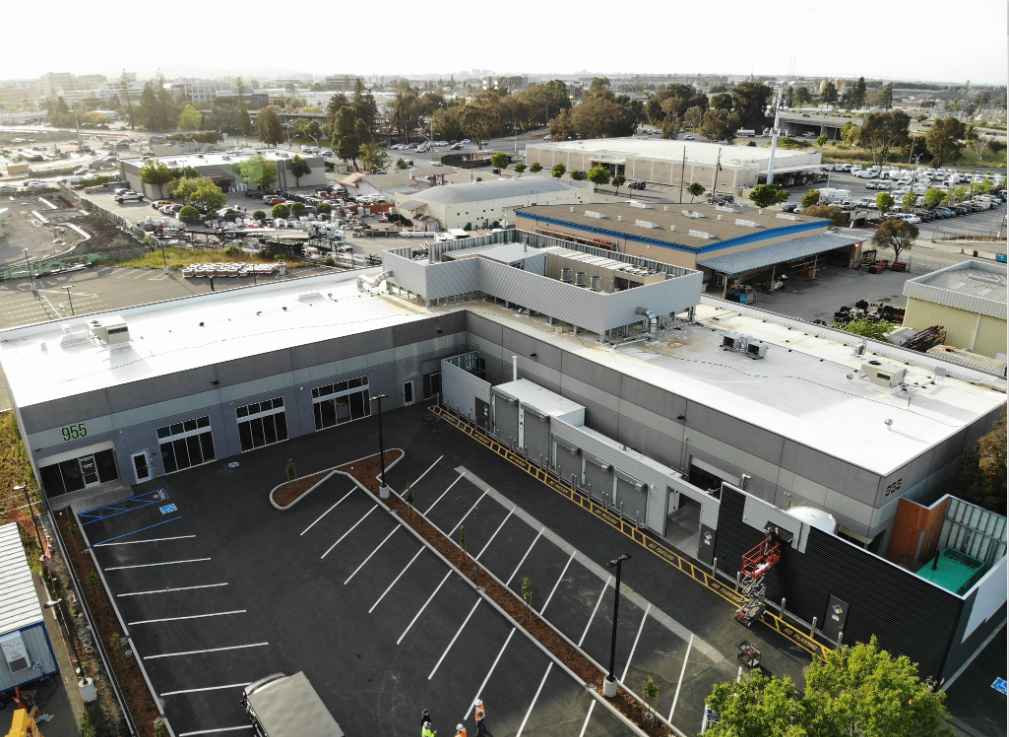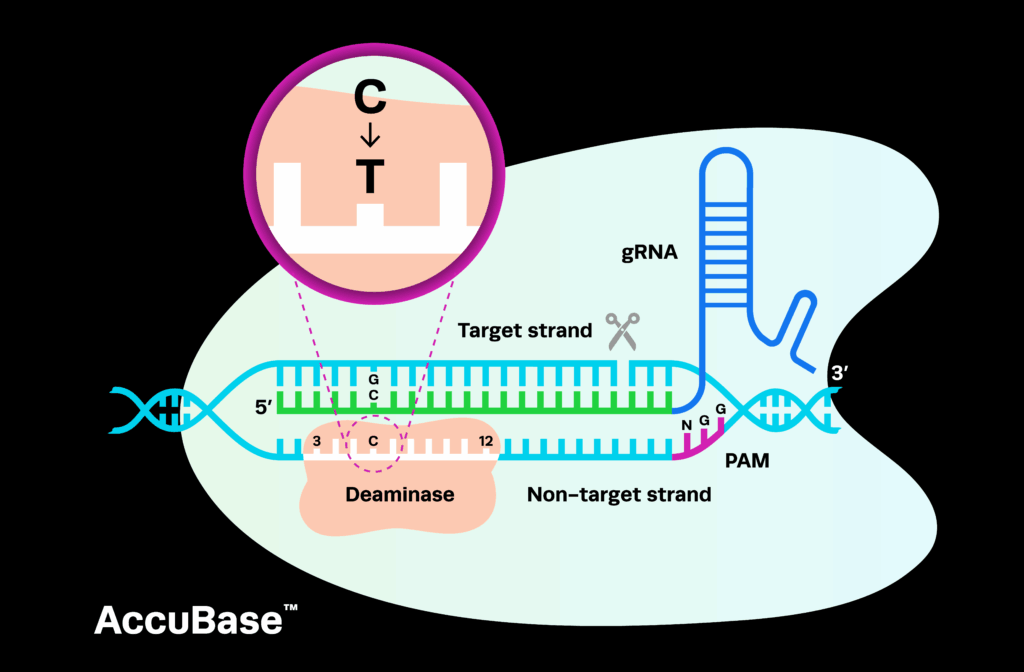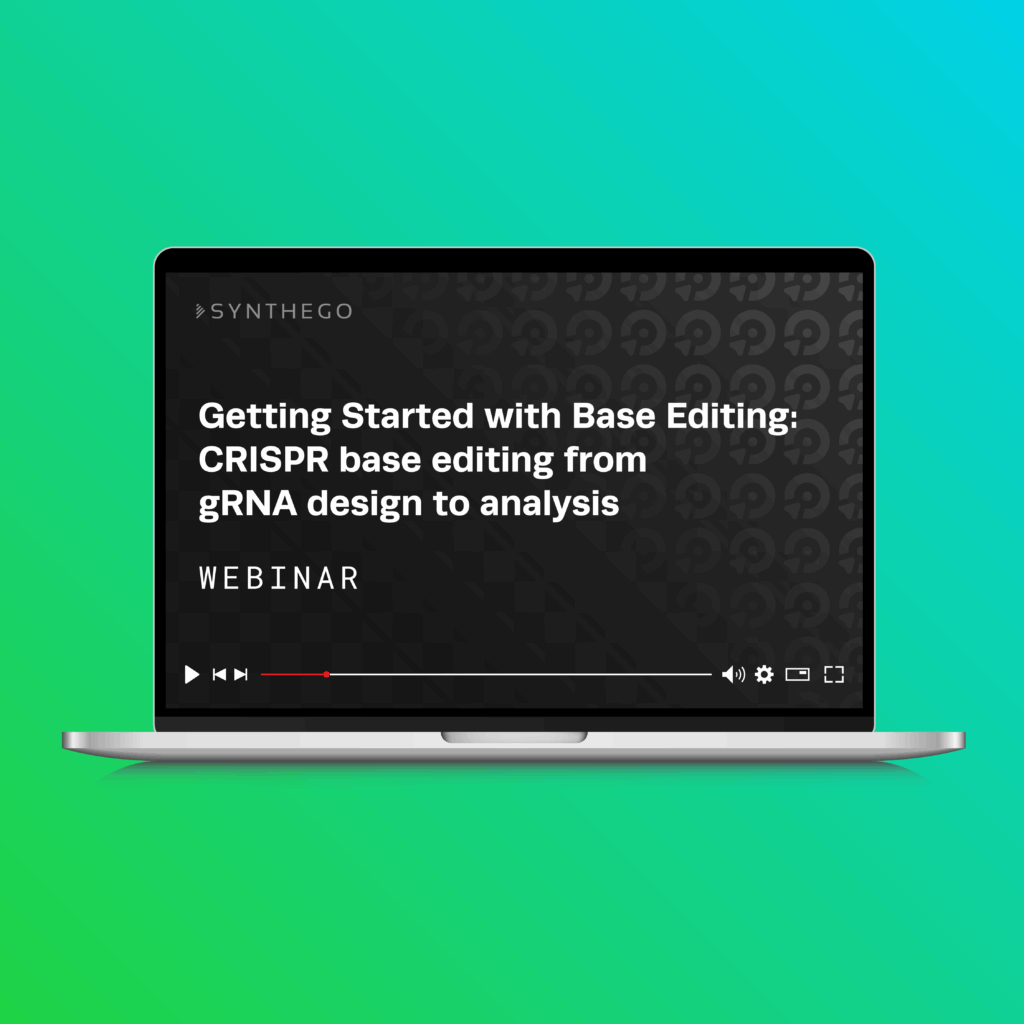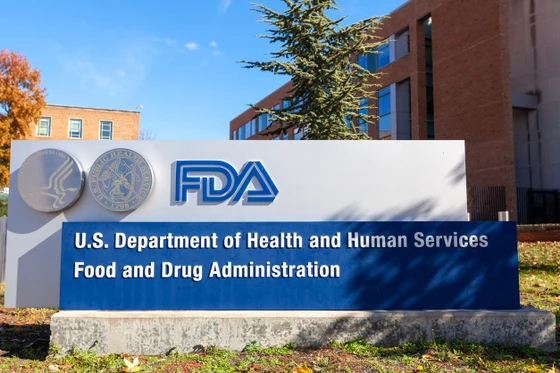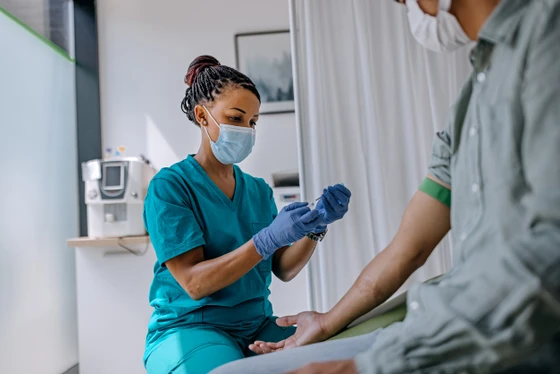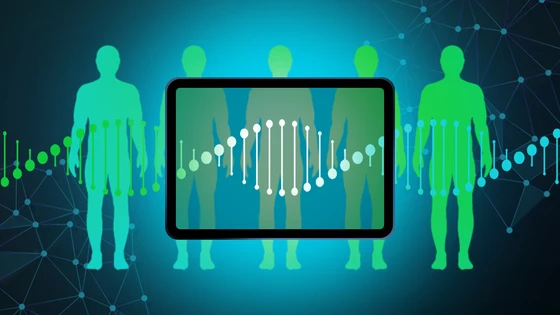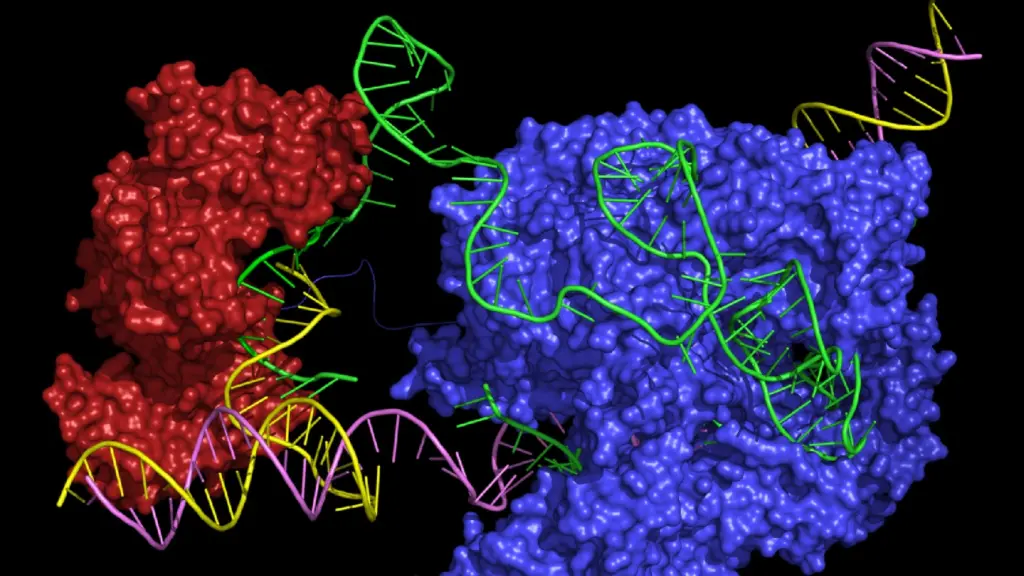CRISPR is quickly transforming the world around us by revolutionizing our approach to scientific research. Since its discovery less than a decade ago, it has rapidly grown in popularity and is now considered the most powerful genome editing tool. With the recent news of Jennifer Doudna and Emmanuelle Charpentier’s Nobel Prize award, researchers around the world are more excited than ever before to learn about this tool.
We are celebrating the past, present, and future of CRISPR at World CRISPR Day, a scientific symposium where stalwarts of the field will discuss their latest research, complete with expo booths and panel discussion about where the field is heading. Curious to know more? Check out the introduction video.
Paul Dabrowski, CEO of Synthego, and Kevin Holden, Head of Science at Synthego will kick off the event by delivering the opening remarks, followed by none other than the mother of CRISPR herself -- Dr. Jennifer Doudna, who will be our keynote speaker.
Learn more about the speakers’ research focus, and why this is a not-to-miss event in this post. For detailed information and registration, check out the event webpage: www.worldcrisprday.com.
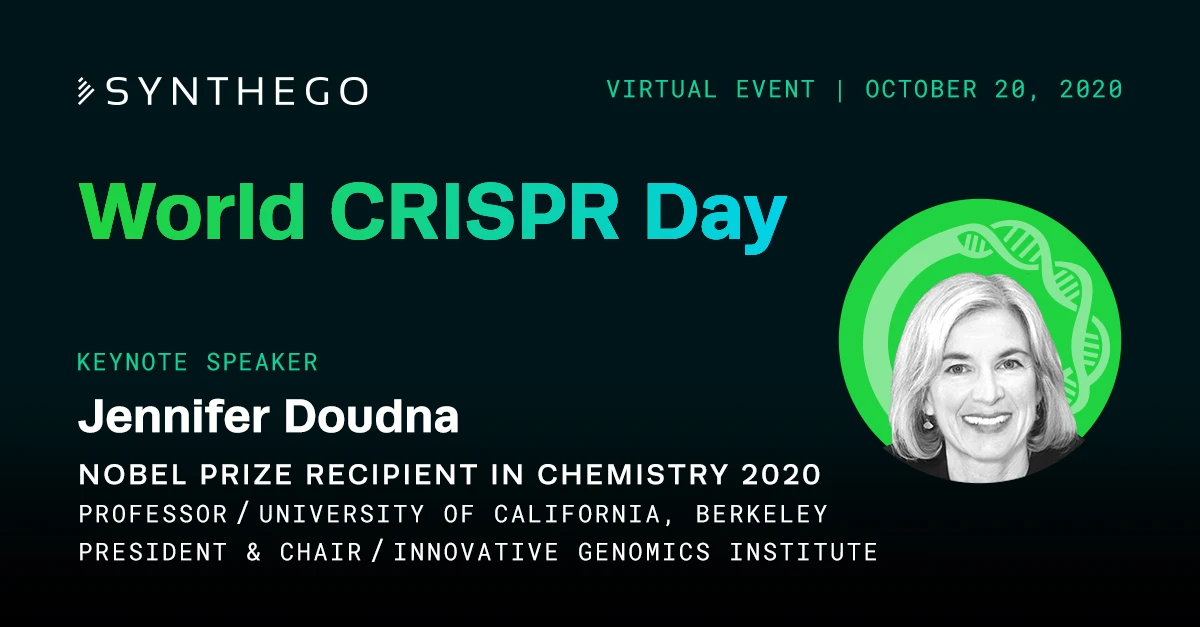
Jennifer Doudna, Ph.D.
Affiliation:
Professor, University of California, Berkeley
President and Chair, Innovative Genomics Institute
Researcher Bio:
Jennifer Doudna is a Professor in the Departments of Chemistry and of Molecular and Cell Biology at the University of California, Berkeley, as well as an Investigator of the Howard Hughes Medical Institute. Her co-discovery of CRISPR-Cas9 genetic engineering technology with collaborator Emmanuelle Charpentier has changed human and agricultural genomics research forever, and they shared the Nobel Prize in chemistry in 2020 for their discovery. Her lab focuses on new gene editing tools, diagnostics, structural studies, and genome editing in different cell types. In addition to her scientific achievements and eminence, Doudna is also a leader in public discussion of the ethical and other implications of genome editing for human biology and societies, and advocates for thoughtful approaches to the development of policies around the use of CRISPR-Cas9.
Session:
Welcome & Keynote
8:00 AM - 8:55 AM PDT
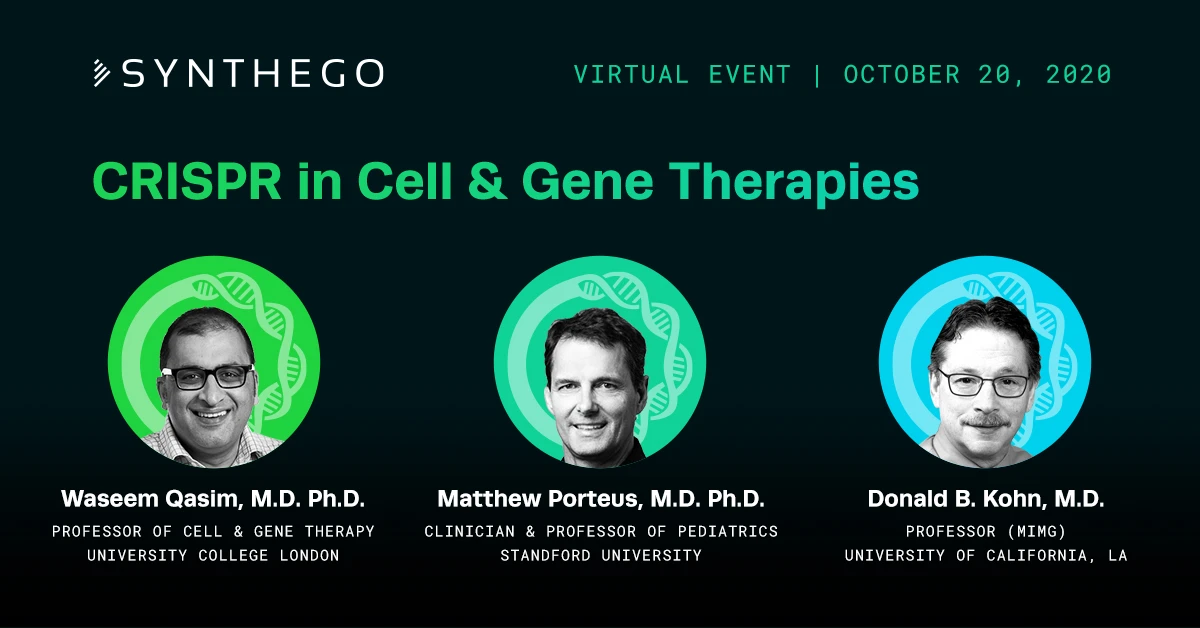
Waseem Qasim, M.D. Ph.D.
Affiliation:
Clinician and Professor of Gene and Cell Therapy
University College London, United Kingdom
Researcher Bio:
Dr. Qasim’s research group combines clinical work in immunology & transplantation with gene therapy research, investigating new treatments for inherited diseases and approaches to use the immune system to treat certain types of cancer. Early applications have already included 'universal' T cells where lentiviral delivery of chimeric antigen receptors has been combined with 'genome-editing' to provide new leukemia treatments. Next-generation cell therapies are being developed using base-editing technology for childhood diseases.
Session:
CRISPR in Cell & Gene Therapies
9:00 AM - 10:00 AM PDT
Matthew Porteus, M.D. Ph.D.
Affiliation:
Clinician and Professor of Pediatrics
Stanford University
Researcher Bio:
Dr. Porteus’ research focuses on developing homologous recombination-based therapies for genetic diseases. His team also specifically uses genome editing to better understand diseases that affect children including infant leukemias and genetic diseases that affect the muscle.
Session:
CRISPR in Cell & Gene Therapies
9:00 AM - 10:00 AM PDT
Don Kohn, M.D.
Affiliation:
Professor in the Departments of Microbiology, Immunology & Molecular Genetics (MIMG); Pediatrics (Hematology/Oncology); and Molecular & Medical Pharmacology
University of California, Los Angeles
Researcher Bio:
Dr. Kohn’s principal area of research is the development and application of methods for gene therapy of blood cell diseases, such as Severe Combined Immune Deficiency and Sickle Cell Disease using autologous hematopoietic stem cells. His lab has investigated methods for optimal lentiviral vector-mediated gene delivery and expression and gene editing with human HSC, performing clinical trials of gene therapy for genetic diseases and pediatric HIV/AIDS.
Session:
CRISPR in Cell & Gene Therapies
9:00 AM - 10:00 AM PDT
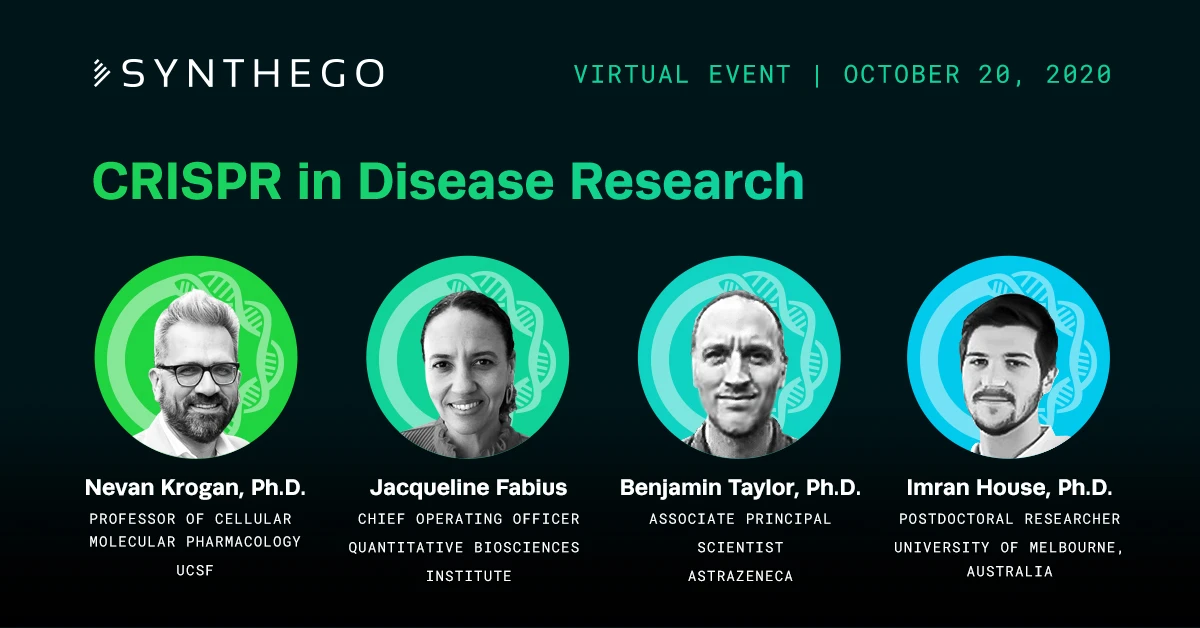
Nevan Krogan, Ph.D.
Affiliation:
Professor of Cellular Molecular Pharmacology
University of California, San Francisc
Researcher Bio:
Dr. Krogan led the work to create the SARS-CoV-2 interactome and assembled the QBI Coronavirus Research Group (QCRG), which includes hundreds of scientists from around the world. His research focuses on developing and using unbiased, quantitative systems approaches to study a wide variety of diseases with the ultimate goal of developing new therapeutics.
Session:
CRISPR in Disease Research
9:00 AM - 10:00 AM PDT
Jacqueline Fabius
Affiliation:
Chief Operating Officer
Quantitative Biosciences Institute
Researcher Bio:
Jacqueline Fabius joined the UCSF as the Chief Operating Officer for the Quantitative Biosciences Institute, where she heads a number of initiatives including establishing relationships and collaborations as well as media and communication strategy for the institute. Her focus is on facilitating communication and networking across wide audiences ranging from scientists to lay audiences.
Session:
CRISPR in Disease Research
9:00 AM - 10:00 AM PDT
Benjamin Taylor, Ph.D.
Affiliation:
Associate Principal Scientist, Discovery Biology
AstraZeneca
Researcher Bio:
Benjamin’s team develops novel cell models and assays to help uncover disease biology and drive drug discovery projects. Much of this work is focused on using and driving innovation in CRISPR genome modification technologies. He is an expert in cellular engineering, transcriptomic, and next-generation sequencing technologies.
Session:
CRISPR in Disease Research
9:00 AM - 10:00 AM PDT
Imran House, Ph.D.
Affiliation:
Postdoctoral Researcher
University of Melbourne, Australia
Researcher Bio:
In 2018, Dr. House joined the newly formed research group of Dr. Paul Beavis, working in close collaboration with the lab of Prof Phil Darcy, where his work focuses on understanding and enhancing immune-based cancer therapies using CRISPR-based gene editing.
Session:
CRISPR in Disease Research
9:00 AM - 10:00 AM PDT
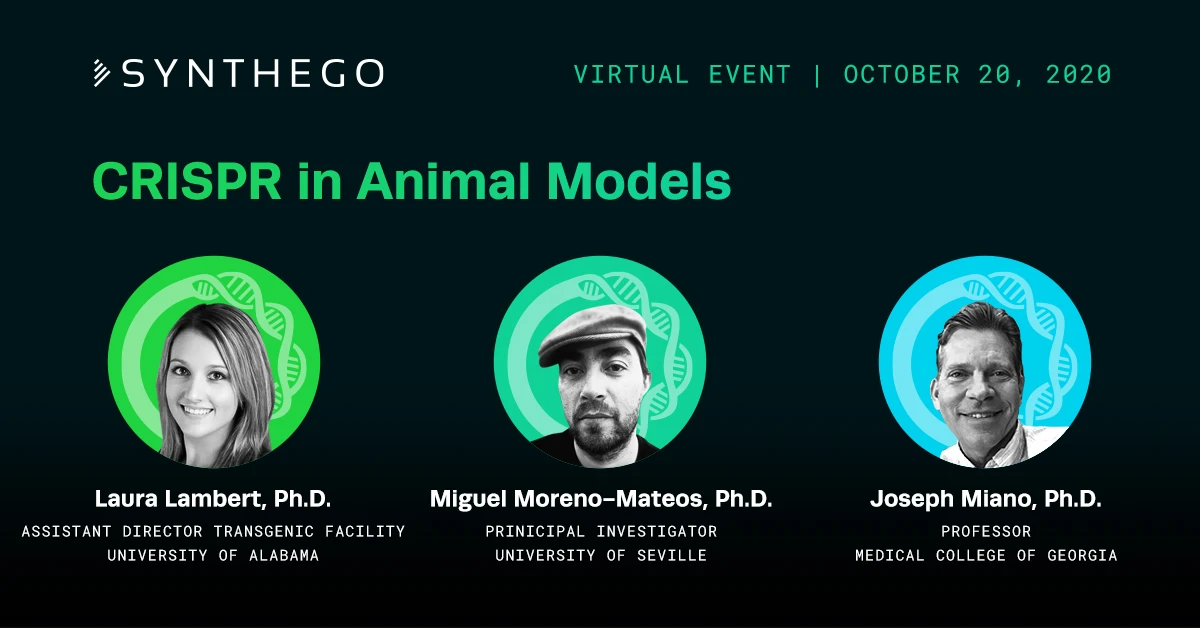
Laura Lambert, Ph.D.
Affiliation:
Assistant Director of the Transgenic Facility
The University of Alabama at Birmingham
Researcher Bio:
Dr. Lambert works with a diverse array of genes and uses state-of-the-art methods to manipulate the genomes of rodent model systems. She has extensive experience in the replication of genetic conditions and modeling of patient-specific mutations such as breast cancer, polycystic kidney disease, neurofibromatosis type I, and cystic fibrosis as well as characterization of the pathogenesis of genetic disorders in rodents.
Session:
CRISPR in Animal Models
10:15 AM - 11:15 AM PDT
Miguel Moreno-Mateos, Ph.D.
Affiliation:
Principal Investigator
The Andalusian Center of Developmental Biology Sevilla, Spain
Researcher Bio:
Dr. Moreno-Mateos lab is focused on the implementation and optimization of different CRISPR-Cas systems using zebrafish and other in vivo model systems. His work in gene editing in zebrafish has previously been featured in a CRISPR Conversations blog post and as a special guest on our CRISPR Office Hours.
Session:
CRISPR in Animal Models
10:15 AM - 11:15 AM PDT
Joseph Miano, Ph.D.
Affiliation:
Professor
Medical College of Georgia
Researcher Bio:
The Miano lab focuses on interrogating the ‘dark matter’ of the genome in human cells and mice for functional noncoding genes (lncRNAs) as well as enhancers and TFBS that control gene expression.
Session:
CRISPR in Animal Models
10:15 AM - 11:15 AM PDT
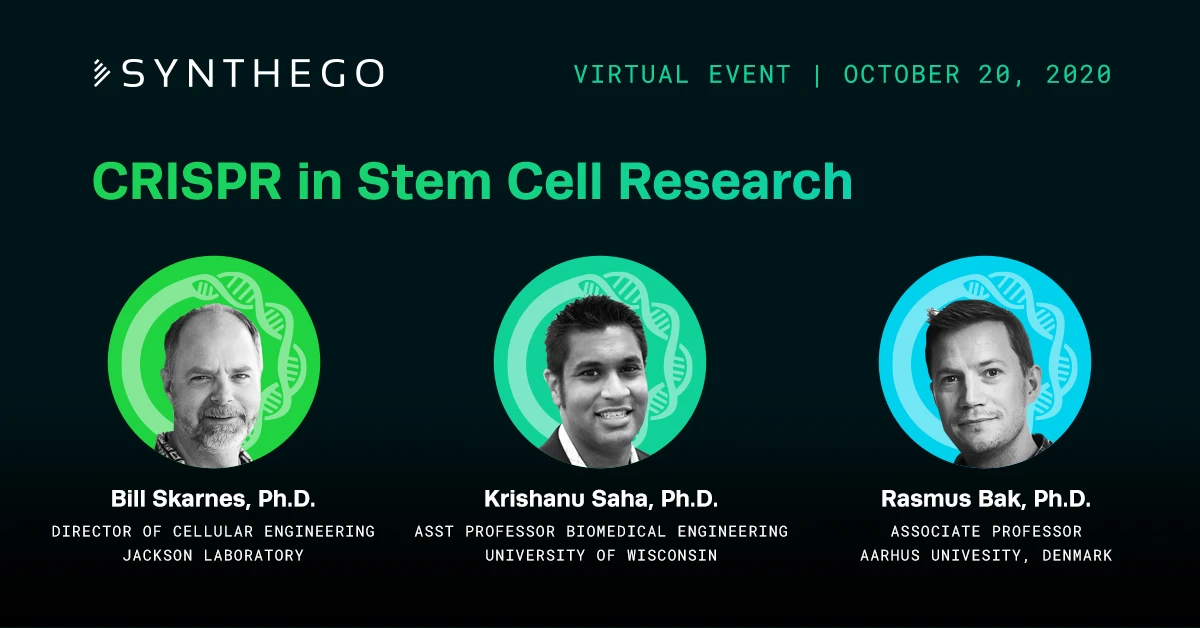
Bill Skarnes, Ph.D.
Affiliation:
Professor and Director, Cellular Engineering
Jackson Laboratory
Researcher Bio:
Dr. Skarnes has spent the better part of his career developing technology and community resources for genetic studies in mice and pluripotent stem cells. He continues to develop genome editing strategies that can be deployed at scale to build community resources, recently publishing improved protocols for the generation of iPSC models of human disease.
Session:
CRISPR in Stem Cell Research
10:15 AM - 11:15 AM PDT
Krishanu Saha, Ph.D.
Affiliation:
Associate Professor of Biomedical Engineering; Co-Chair, Steering Committee
University of Wisconsin-Madison; NIH Somatic Cell Genome Editing Consortium
Researcher Bio:
Dr. Saha’s lab focuses on gene editing and cell engineering of human cells found in the retina, central nervous system, liver, and blood. Specifically, he will talk about their new approaches to inform first-in-human studies that combine patient-derived, induced pluripotent stem cell (iPSC) models with single-cell analysis and computational models.
Session:
CRISPR in Stem Cell Research
10:15 AM - 11:15 AM PDT
Rasmus Bak, Ph.D.
Affiliation:
Associate Professor
Aarhus University, Denmark
Researcher Bio:
Dr. Bak’s research is primarily focused on CRISPR-mediated genomic integration of large transgenes in human cells. Specifically, his recent research has evolved around editing CD34+ hematopoietic stem cells and using CRISPR with the AAV6 donor delivery to correct genetic mutations responsible for different hematopoietic genetic diseases.
Session:
CRISPR in Stem Cell Research
10:15 AM - 11:15 AM PDT
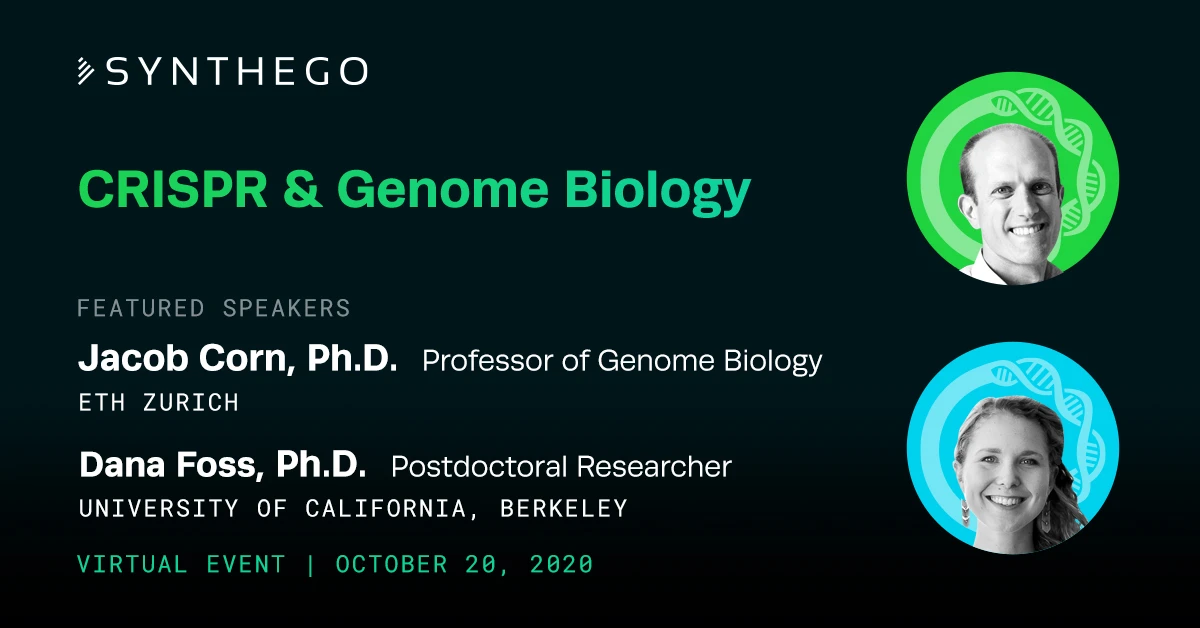
Jacob Corn, Ph.D.
Affiliation:
Professor of Genome Biology
ETH Zurich
Researcher Bio:
Dr. Corn’s research aims to better understand and treat disease through next-generation genome editing technologies. His team’s focus is studying the mechanisms by which cells repair their DNA, maintain and differentiate hematopoietic stem cells, and dispose of entire organelles. Through technology development, mechanistic cellular biochemistry, and translational projects, they are working to unravel complex cellular phenotypes to further biological understanding and improve human health.
Session:
CRISPR & Genome Biology
10:15 AM - 11:15 AM PDT
Dana Foss, Ph.D.
Affiliation:
Postdoctoral Researcher
University of California, Berkeley
Researcher Bio:
Dr. Dana Foss is a postdoctoral fellow in Ross Wilson’s Lab at UC Berkeley, working to overcome the CRISPR delivery hurdle. Her work focuses on developing methods for non-viral tissue-targeted Cas9 delivery, primarily through the use of antibodies, for gene therapy.
Session:
CRISPR & Genome Biology
10:15 AM - 11:15 AM PDT
Marcello Maresca, Ph.D.
Affiliation:
Senior Principal Scientist
AstraZeneca
Researcher Bio:
Dr. Maresca obtained his Ph.D. in Molecular Biology from Max Planck Institute of Molecular Cell Biology and Genetics in Dresden, where he worked on the development of the most used genome engineering tool in bacteria, recombineering. He did his postdoctoral work at the Novartis Institute of BioMedical Research (Cambridge, MA) where he worked on the development and applications of genome editing tools in drug discovery.
Session:
CRISPR & Genome Biology
10:15 AM - 11:15 AM PDT
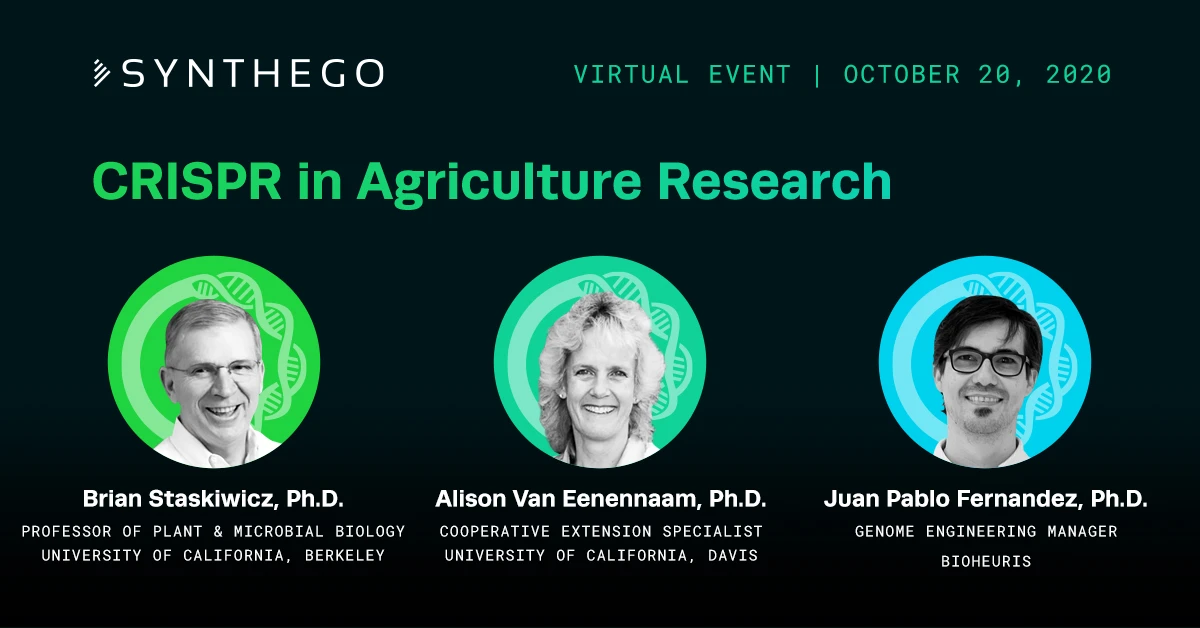
Brian Staskiwicz, Ph.D.
Affiliation:
Professor of Plant and Microbial Biology
University of California, Berkeley
Researcher Bio:
Staskawicz has made many seminal contributions to the understanding of infection strategies of plant pathogens and defense mechanisms of plants. These include the cloning of the first pathogen effector gene and the cloning and characterization of one of the first plant NLR immune receptors. Brian and his colleagues also played a major role in establishing Arabidopsis as a model system to study the molecular basis of microbial recognition by plants and genetically dissect defense signaling pathways. More recently, he is leading an effort at the IGI in the genome editing of agricultural crops for biotic and abiotic stress resistance and improved plant performance.
Session:
CRISPR in Agriculture Research
11:30 AM - 12:30 PM PDT
Alison Van Eenennaam, Ph.D.
Affiliation:
Cooperative Extension Specialist
University of California, Davis
Researcher Bio:
Alison L. Van Eenennaam is a Cooperative Extension Specialist in the Department of Animal Science at the University of California, Davis, and runs the Animal Genomics and Biotechnology Laboratory. Her research group uses genome editing technologies in beef cattle production and animal welfare projects, the latest ones involving generating hornless dairy cows and her famous “All Boys” project.
Session:
CRISPR in Agriculture Research
11:30 AM - 12:30 PM PDT
Juan Pablo Fernandez, Ph.D.
Affiliation:
Genome Engineering Manager
BIOHEURIS
Researcher Bio:
Juan and his team are developing a non-GMO and DNA-free platform that combines cutting-edge CRISPR genome editing and plant tissue culture to empower crops.
Session:
CRISPR in Agriculture Research
11:30 AM - 12:30 PM PDT
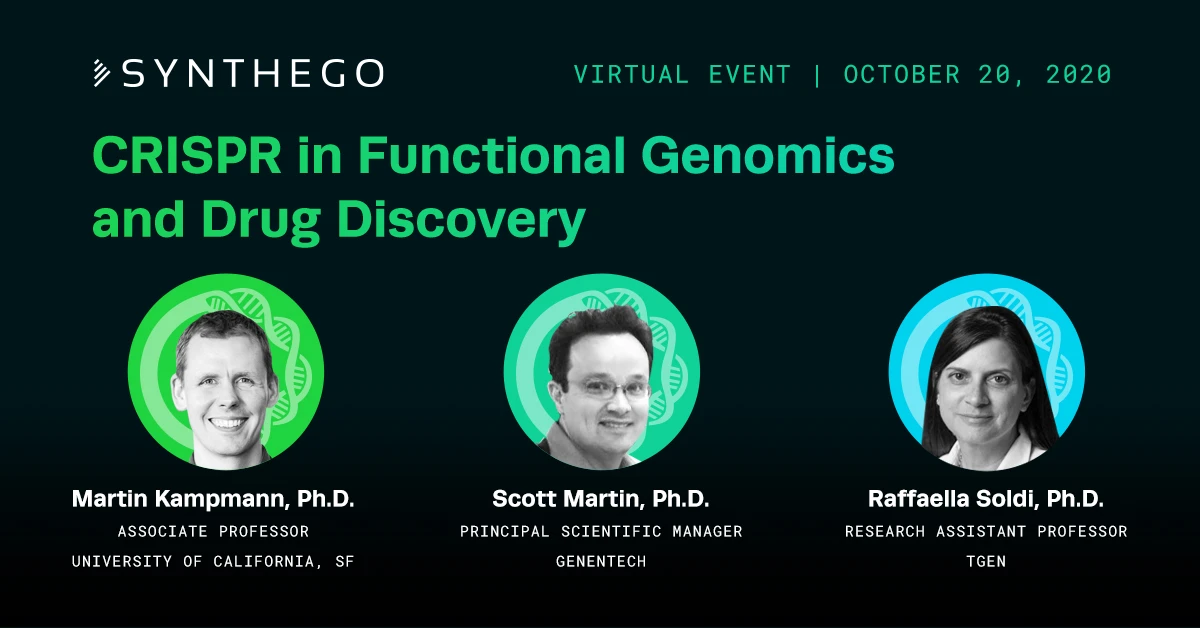
Martin Kampmann, Ph.D.
Affiliation:
Associate Professor
University of California, San Francisco
Researcher Bio:
Dr. Kampmann’s goal is to understand the molecular mechanisms driving neurodegenerative diseases such as Alzheimer’s and Parkinson’s. He is developing cell-based models of neurodegenerative disease processes in human induced pluripotent stem cells and is carrying out CRISPRi screens to identify underlying neuron-specific processes.
Session:
CRISPR in Functional Genomics and Drug Discovery
11:30 AM - 12:30 PM PDT
Scott Martin, Ph.D.
Affiliation:
Principal Scientific Manager, Associate Director, Functional Genomics
Genentech
Researcher Bio:
Dr. Martin leads numerous functional genomics efforts at Genentech, where his group conducts chemical and genetic screens to interrogate basic biology and therapeutically relevant questions. These efforts span all therapeutic areas, and range from genome-wide screens to much more focused efforts in complex model systems.
Session:
CRISPR in Functional Genomics and Drug Discovery
11:30 AM - 12:30 PM PDT
Raffaella Soldi, Ph.D.
Affiliation:
Research Assistant Professor
TGen
Researcher Bio:
Dr. Soldi’s research focuses on translational and preclinical studies on human cancer with the ultimate goals to develop molecularly-targeted therapeutic strategies to treat human malignancies.
Session:
CRISPR in Functional Genomics and Drug Discovery
11:30 AM - 12:30 PM PDT
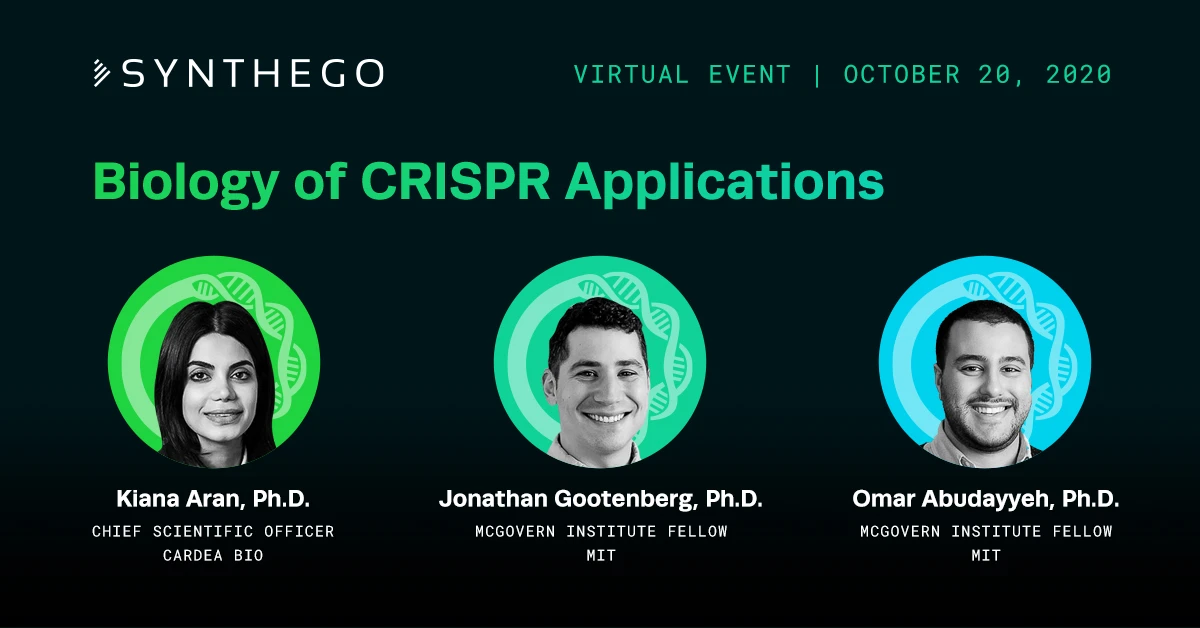
Kiana Aran, Ph.D.v
Affiliation:
Chief Scientific Officer
Cardea Bio
Researcher Bio:
Dr. Aran’s research efforts focus on designing novel biosensing technologies, using 2D nanomaterials, for early disease diagnosis as well as utilizing biology as tech elements for a variety of biosensing applications. She is the inventor of CRISPR-Chip™, the first reported CRISPR-powered electronic sensor. CRISPR-Chip utilizes three revolutionary discoveries and inventions of the century: CRISPR, graphene, and a transistor to create CRISPR-powered graphene transistors.
Session:
Biology of CRISPR Applications
11:30 AM - 12:30 PM PDT
Stanley Qi, Ph.D.
Affiliation:
Assistant Professor
Stanford University
Researcher Bio:
Dr. Qi was first to demonstrate the use of the nuclease-deactivated dCas9 molecule for targeted gene regulation in cells, known as CRISPR interference/activation (CRISPRi/a). His work greatly expanded the CRISPR toolkit, including novel CRISPR tools for epigenome editing, 3D chromatin organization, live-cell imaging, and CRISPR screening. Beyond tool development, he pilots new applications in the gene therapy field using CRISPR, including the use of CRISPR as an antiviral strategy to combat SARS-CoV-2 and other RNA virus-related infectious diseases.
Session:
Biology of CRISPR Applications
11:30 AM - 12:30 PM PDT
Jonathan Gootenberg, Ph.D.
Affiliation:
McGovern Institute Fellow
Massachusetts Institute of Technology
Researcher Bio:
Gootenberg’s research is focused on the development of molecular technologies for treating and sensing disease states, crossing disciplines by utilizing novel computational techniques, microbiology, biochemistry, and molecular biology to uncover new CRISPR tools, including Cas12 and Cas13. He is the co-founder of the diagnostic platform company SHERLOCK Biosciences.
Session:
Biology of CRISPR Applications
11:30 AM - 12:30 PM PDT
Omar Abudayyeh, Ph.D.
Affiliation:
McGovern Institute Fellow
Massachusetts Institute of Technology
Researcher Bio:
His doctoral research was advised by Feng Zhang of the Broad Institute of MIT and Harvard and was focused on the discovery of novel CRISPR enzymes for applications in genome editing, therapeutics, and diagnostics. He, along with Jonathan Gootenberg, co-founded SHERLOCK Biosciences.
Session:
Biology of CRISPR Applications
11:30 AM - 12:30 PM PDT
Elliot Kirschner
Affiliation:
Executive Producer
Wonder Collaborative
Researcher Bio:
Elliot Kirschner is a New York Times best-selling author and Emmy-award winning news and documentary producer with a passion for science storytelling. He is a producer and executive producer on the gene-editing documentary Human Nature and was supervising producer on the science film The Most Unknown.
Session:
The Future of CRISPR: Engineering and Educational Challenges (Panel Discussion)
12:30 PM - 1:15 PM PDT
Sarah Goodwin, Ph.D.
Affiliation:
Executive Director
Wonder Collaborative
Researcher Bio:
Sarah is a producer and “science guru” for the documentary Human Nature and is eager to make sure science films for the general public capture the awe and wonder of discovery.
Session:
The Future of CRISPR: Engineering and Educational Challenges (Panel Discussion)
12:30 PM - 1:15 PM PDT
Alta Charo, Ph.D.
Affiliation:
Warren P. Knowles Professor of Law and Bioethics
University of Wisconsin
Researcher Bio:
R. Alta Charo is the Warren P. Knowles Professor of Law and Bioethics at the University of Wisconsin at Madison. She is an elected fellow of the National Academy of Medicine (formerly known as the Institute of Medicine) where she serves on its Board on Health Sciences Policy and its executive council.
Session:
The Future of CRISPR: Engineering and Educational Challenges (Panel Discussion)
12:30 PM - 1:15 PM PDT
Tshaka Cunningham, Ph.D.
Affiliation:
Chief Scientific Officer
TruGenomix
Researcher Bio:
12:30 PM - 1:15 PM PDT
Dr. Tshaka Cunningham previously served as the Scientific Program Manager for the Aging and Neurodegenerative Diseases Rehabilitation Research Program at the U.S. Department of Veterans Affairs within the Veterans Health Administration’s Office of Research & Development (VHA ORD).
Session:
The Future of CRISPR: Engineering and Educational Challenges (Panel Discussion)
Fyodor Urnov, Ph.D.
Affiliation:
Professor of Genetics, Genomics and Development, Director for Technology and Translation
University of California, Berkeley; The Innovative Genomics Institute
Researcher Bio:
Dr. Urnov is a pioneer in the field of genome editing, with a diverse background in academia, industry, and the nonprofit sector. He joined the Innovative Genomics Institute (IGI) as Scientific Director of Technology and Translation in 2018.
Session:
The Future of CRISPR: Engineering and Educational Challenges (Panel Discussion)
12:30 PM - 1:15 PM PDT
We hope you are as excited as we are with this speaker lineup. Register for World CRISPR Day now!
If you are interested in learning more about CRISPR science, be sure to follow CRISPR in the news. You can also catch up with us on our blog, or follow us on Twitter or Facebook!

